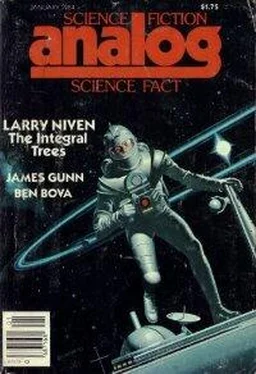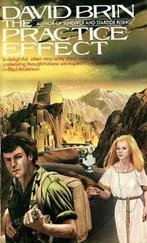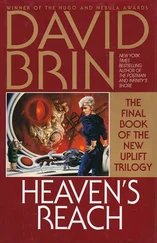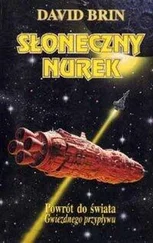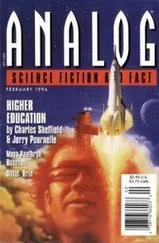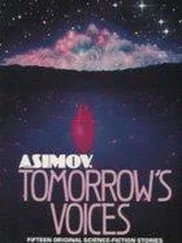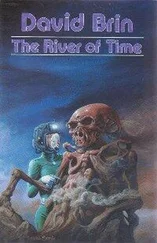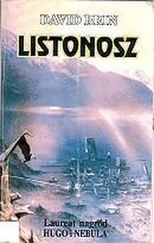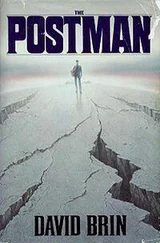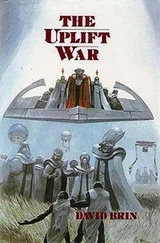David Brin - The Crystal Spheres
Здесь есть возможность читать онлайн «David Brin - The Crystal Spheres» весь текст электронной книги совершенно бесплатно (целиком полную версию без сокращений). В некоторых случаях можно слушать аудио, скачать через торрент в формате fb2 и присутствует краткое содержание. Год выпуска: 1984, Издательство: Davis Publications, Inc., Жанр: Фантастика и фэнтези, на английском языке. Описание произведения, (предисловие) а так же отзывы посетителей доступны на портале библиотеки ЛибКат.
- Название:The Crystal Spheres
- Автор:
- Издательство:Davis Publications, Inc.
- Жанр:
- Год:1984
- ISBN:нет данных
- Рейтинг книги:4 / 5. Голосов: 1
-
Избранное:Добавить в избранное
- Отзывы:
-
Ваша оценка:
- 80
- 1
- 2
- 3
- 4
- 5
The Crystal Spheres: краткое содержание, описание и аннотация
Предлагаем к чтению аннотацию, описание, краткое содержание или предисловие (зависит от того, что написал сам автор книги «The Crystal Spheres»). Если вы не нашли необходимую информацию о книге — напишите в комментариях, мы постараемся отыскать её.
Won Hugo Award for Best Short Story in 1985.
The Crystal Spheres — читать онлайн бесплатно полную книгу (весь текст) целиком
Ниже представлен текст книги, разбитый по страницам. Система сохранения места последней прочитанной страницы, позволяет с удобством читать онлайн бесплатно книгу «The Crystal Spheres», без необходимости каждый раз заново искать на чём Вы остановились. Поставьте закладку, и сможете в любой момент перейти на страницу, на которой закончили чтение.
Интервал:
Закладка:
The greater asteroids held marvelous, self-sustaining ecosystems, absorbing sunlight under great windows. Twenty moons sheltered huge forests beneath tremendous domes. But there was no traffic, no radio or light messages. Yen’s detectors revealed no machine activity, nor the thought-touch of analytical beings.
It felt eerie to poke our way through those civilized lanes in the smallbody ways. For so long we had only performed such maneuvers in the well-known spaces of Solsystem.
During those first centuries after the crystal crisis, some men and women still thought it would be possible to live among the stars. Belters mostly, they claimed aloud that planets were nasty, heavy places anyway. So who needed them?
They went out to the badstars —red giants and tiny red dwarves, tight binaries and unstable suns. The badstars were protected by no crystalspheres. The would-be colonists found drifting clots of matter near the suns, and set up smallbody cities as they had at home.
Every one of the attempts failed within a few generations. The colonists simply lost interest in procreation.
The psychists finally decided the cause was related to the divine madness that had enabled us to win the CometWar.
Simply put, men and women could live on asteroids, but they needed to know that there was as blue world nearby—to see it in their sky. It’s a flaw in our character, no doubt, but we cannot go out and live in space all alone.
We have to have waterworlds, if the universe is ever to be ours.
This system’s waterworld we named Quest, after the beast so long sought by King Pelenor, our ship’s namesake. It shone blue and brown, under a clean whiteswaddling of clouds. For hours we circled above it, and simply cried.
Alice awakened ten corpsicles—prominent scientists who, the Worldcomps had promised, would not fall apart on the reawakening of hope.
We watched them take their turn at the viewport, joytears streaming down their faces, and we joined them to weep freely once again.
6
Pelenor was hardly up to the task of exploring this system by herself. We spent a year recovering and modifying several of the ancient ships we found drifting over our planet, so that teams could spread out, investigating every farcorner of this system.
By our second anniversary, a hundred biologists were quickscampering over the surface of Quest. They genescanned the local flora and fauna excitedly, and already were modifying Earthplants to fit into the ecosystem without causing imbalance. Soon they would start on animals from our genetanks.
Engineers exploring the smallbodies excitedly declared that they could get the lifemachines left behind by the prior race to work. There was room for a billion colonists out there, straight from the start.
But the archaeologists were the ones whose report we awaited most anxiously. Between my ferrying runs, they were the ones I helped. I joined them in the dusty ruins of Oldcity, at the edge of Longvalley, putting together piles of artifacts to be catalogued and slowly analyzed.
We learned that the inhabitants had called themselves the Nataral. They were about as similar to us as we might have expected—bipedal, ninefingered, weirdlooking.
Still, one got used to their faces after staring at their statues and pictures long enough. I even began to perceive subtle facial cues, and delicate, sensitive nuances of expression. When the language was cracked, we learned their race name and some of their story.
Unlike the few other alien intelligences we had observed from afar, the Natarals were individuals, and explorers. They too had spread into their planetary system after a worldbound history fully as colorful and goodbad as our own.
Like us, they had two conflicting dreams. They longed for the stars, for room to grow. And they also wished for other faces, for neighbors.
By the time they built a starship—their first—they had given up on the idea of neighbors. There was no sign anybody had ever visited their world. They heard nothing but silence from the stars.
Still, when they were ready, they launched their firstship toward their other dream—Room.
And within weeks of the launching, their sun’s crystalsphere shattered.
For two weeks we double-checked the translations. We triple-checked.
For millennia we had been searching for a way to destroy these deadly barriers around goodstars… trying to duplicate on purpose what Seeker had accomplished by accident. And now we had the answer.
The Nataral, like us, had managed to destroy one and only one crystalsphere. Their own. And the pattern was exactly the same, down to the CometWar that subsequently almost wrecked their high civilization.
The conclusion was obvious. The deathbarriers were destructible, but only from the inside !
And just when that idea was starting to sink in, the archaeologists dug up the Obelisk.
7
Our top linguist, Garcia Cardenas, had a flair for the dramatic. When Alice and I visited him in his encampment at the base of the newly excavated monument, he insisted on putting off all discussion of his discovery until the next day. He and his partner instead prepared a special meal for us, and raised their glasses to toast Alice.
She stood and accepted their accolades with dry wit, and then sat down to continue nursing our baby.
Old habits break hard, and only a few of the women had managed yet to break centuries of biofeedback conditioning not to breed. Alice was among the first to reactivate her ovaries and bring a child to our new world.
It wasn’t that I was jealous. After all, I basked in the only slightly lesser glory of fatherhood. But I was getting impatient with all of this ballyhoo. Except for Moishe Bok, I was perhaps the oldest human here—old enough to remember when people had children as a matter of course, and therefore made time for other matters, when something important was up!
Finally, when the celebration had wound down, Garcia Cardenas nodded to me, and led me out the back flap of the tent. We followed a dim path down a sloping trail to the digs, by the light of the ring of bright smallbodies the Nataral had left permanently in place over the equatorial sky of Quest.
We finally arrived at a bright alloy wall that towered high above our heads. It was made of a material our techs had barely begun to analyze, and was nearly impervious to the effects of time. On it were inscribed hardpatterns bearing the tale of the last days of the Nataral.
A lot of that story we knew from other translated records. But the end itself was still a mystery, and no small cause of nervousness. Had it been some terrible plague? Did the intelligent machines, on which both their civilization and ours relied, rebel and slaughter their masters? Did their sophisticated bioengineering technology get out of their control?
What we did know was that the Nataral had suffered. Like humans, they had gone out and found the universe closed to them. Both of their great dreams—of goodplaces to spreadsettle, and of other minds to meet—had been shattered like the deathsphere around their own star. Like humans, they spent quite a long time not entirely sane.
In the darkness deep within the dig, Cardenas had promised I would find answers.
As he prepared his instruments I listened to the sounds of the surrounding forestjungle. Life abounded on this world. There were lovely, complicated creatures, some clearly natural, and some just as clearly the result of clever biosculpting. In their creatures, in their art and architecture, in the very reasons they had almost despaired, I felt a powerful closeness to the Nataral. I would have liked them, I imagined.
I was glad to take this world for humanity, for it might mean salvation for my species. Still, I regretted that the other race was gone.
Читать дальшеИнтервал:
Закладка:
Похожие книги на «The Crystal Spheres»
Представляем Вашему вниманию похожие книги на «The Crystal Spheres» списком для выбора. Мы отобрали схожую по названию и смыслу литературу в надежде предоставить читателям больше вариантов отыскать новые, интересные, ещё непрочитанные произведения.
Обсуждение, отзывы о книге «The Crystal Spheres» и просто собственные мнения читателей. Оставьте ваши комментарии, напишите, что Вы думаете о произведении, его смысле или главных героях. Укажите что конкретно понравилось, а что нет, и почему Вы так считаете.
